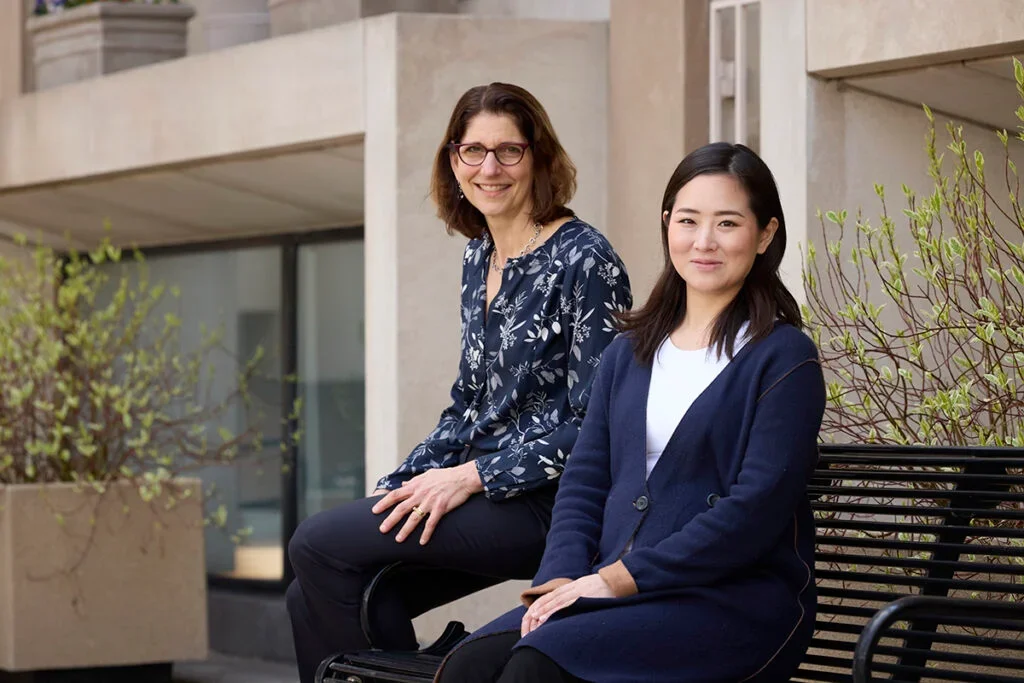Kubzansky Research Group
Dr. Laura Kubzansky is professor of social and behavioral sciences and director of the Society and Health Laboratory at Harvard T.H. Chan School of Public Health. She is a sitting faculty member at the Harvard Center for Population and Development Studies, and served as a founding director of both the JPB Environmental Health Fellowship Program and the Lee Kum Sheung Center for Health and Happiness at Harvard Chan School.
677 Huntington Avenue
Kresge Building, Room 603
Boston, MA 02115
Publications
Dr. Laura Kubzansky’s publications can be found on Google Scholar, PubMed, and ResearchGate. Selected interviews and publications are featured below.

Feature – 5 Science-Backed Longevity ‘Hacks’ That Don’t Cost a Fortune
Click here to read a NYT times article that features Dr. Kubzansky’s work on optimism and aging.

Interview – The positive health effects of prosocial behavior
Click here to read a recent interview given in response to her opinion piece in Nature Human Behavior, “Prosociality should be a public health priority.”

Interview – Can optimism and kindness contribute to worker health and well-being?
Click here to read a recent interview given by Hayami Koga, an advisee of Dr. Kubzansky, on her work on the health benefits of optimism.

Study Findings – Chronic loneliness may increase stroke risk among older adults
Click here to read a summary of a recent study by Dr. Kubzansky and colleagues on chronic loneliness and risk of stroke. Read the full paper in the Featured Publications section below!
Featured Publications
In this opinion piece, published in Nature Human Behavior, Dr. Kubzansky and colleagues argue that “hopelessness and despair threaten health and longevity. We urgently need strategies to counteract these effects and improve population health. Prosociality contributes to better mental and physical health for individuals, and for the communities in which they live. We propose that prosociality should be a public health priority.”
Read the full article here!
Individuals as well as healthcare systems, employers, school districts, and governments are increasingly interested in initiatives that can improve the psychological well-being of the people they serve and the people within their organizations. However, many knowledge gaps undermine our research community’s ability to meet these growing requests for tools that can improve psychological well-being in meaningful, durable, and scalable ways.
The goal of this special issue is to showcase novel empirical evidence examining interventions that can modify psychological well-being, particularly those that have the potential to be scaled at the population level. We are interested in key aspects of how these interventions play out, but particularly welcome papers that speak to the theme of “What Works, What Doesn’t Work, and an Agenda for Future Research.”
Around this theme we included papers that address: meaningful effect sizes, durability and scalability of interventions, efficacy across diverse populations and settings, effective modes of delivery, mechanisms of effect, methodological innovations, brief-touch/micro interventions, and informative null effects. In addition, we included work that seeks to refine or develop conceptual models that specifically include or address why or how interventions are likely to be broadly effective. We define psychological well-being as overall positive state of one’s emotions, life satisfaction, sense of meaning and purpose, and ability to pursue self-defined goals (which others have referred to as emotional well-being: https://www.nccih.nih/gov/grants/concepts/consider/emotional-wellbeing-high-priority-research-networks).
Contributions come from multiple disciplines including – but not limited to- psychology (health, social, personality, biological, developmental, clinical, cultural, organizational & industrial, cognitive, etc.), public health (social & behavioral sciences, epidemiology, health policy, global health), neuroscience, communication science, economics, sociology, and computer science. At Affective Science, affective processes are broadly constructed, and include emotion, mood, stress, motivation, reward processes, and affective evaluations.
See the Special Issue here.
In this research study, published in eClinicalMedicine, Dr. Kubzansky and colleagues investigate the association of loneliness changes with incident stroke. Addressing research gaps that arise from examining loneliness at only one time point, which may paint an incomplete picture, this study is especially interested in identifying whether or not the chronicity of loneliness plays a role in the relationship of loneliness and incident stroke. Ultimately, the team found that chronic loneliness was associated with higher stroke risk independent of depressive symptoms or social isolation.
Read the full paper here
This article by Dr. Kubzansky and her colleagues makes the bold argument that “scholars, policymakers, and practitioners should broaden their view of mental health, and consider it as a full spectrum ranging from serious mental illness to robust emotional well-being.” In doing so, this perspective elevates the value of prevention, particularly at the population level. “While increasing access to and improving mental health services is critical, the scope of the mental health crisis we face as a country far exceeds what can be fully addressed within the traditional medical system. Population-level approaches that prioritize prevention and fostering capacity for healthy functioning are urgently needed.”
Read the full article here
In the wake of the COVID-19 pandemic, Dr. Kubzansky and her colleagues examine the problematic, existing dichotomy between efforts to promote physical wellbeing and mental wellbeing. “With the recent tremendous increase in methodologically rigorous research demonstrating that poor mental health—including in the context of traumatic stress—precedes and predicts chronic disease onset and premature mortality, such a dichotomy is no longer tenable. However, the pandemic throws into sharp relief the persistence of this dichotomization and the costs of continuing to view mental and physical health as competing for resources required to improve the public’s health.” Scholars and practitioners alike must not only stop viewing and treating mental and physical health as separate entities, but should also advance research that investigates the links bridging the two.
Read the full paper here